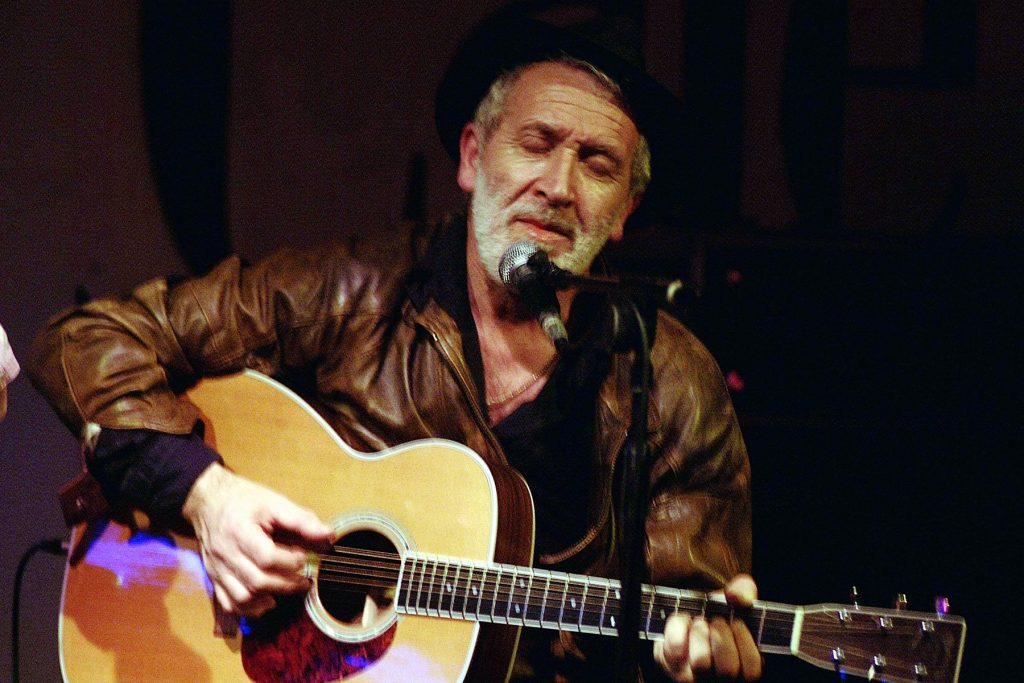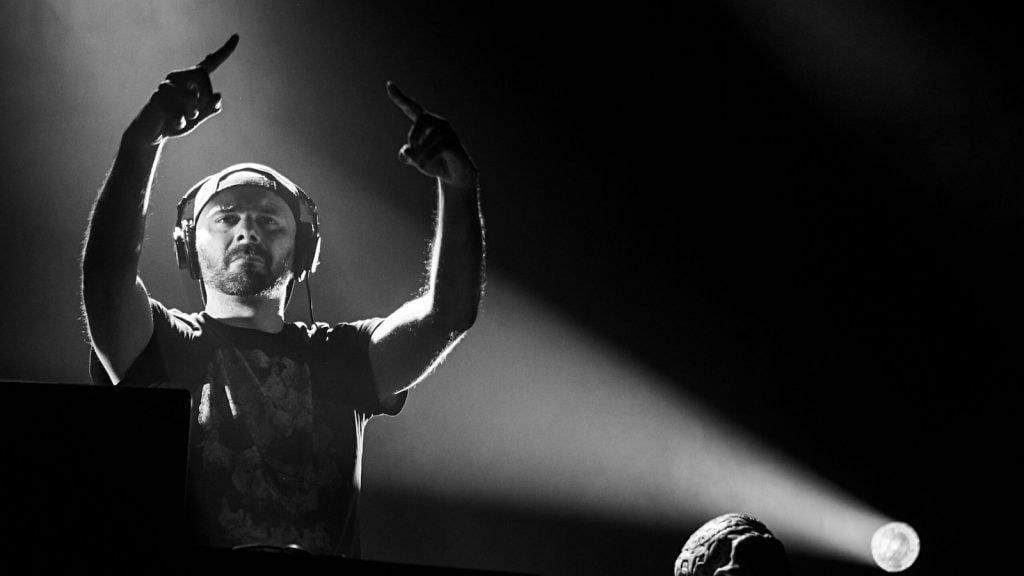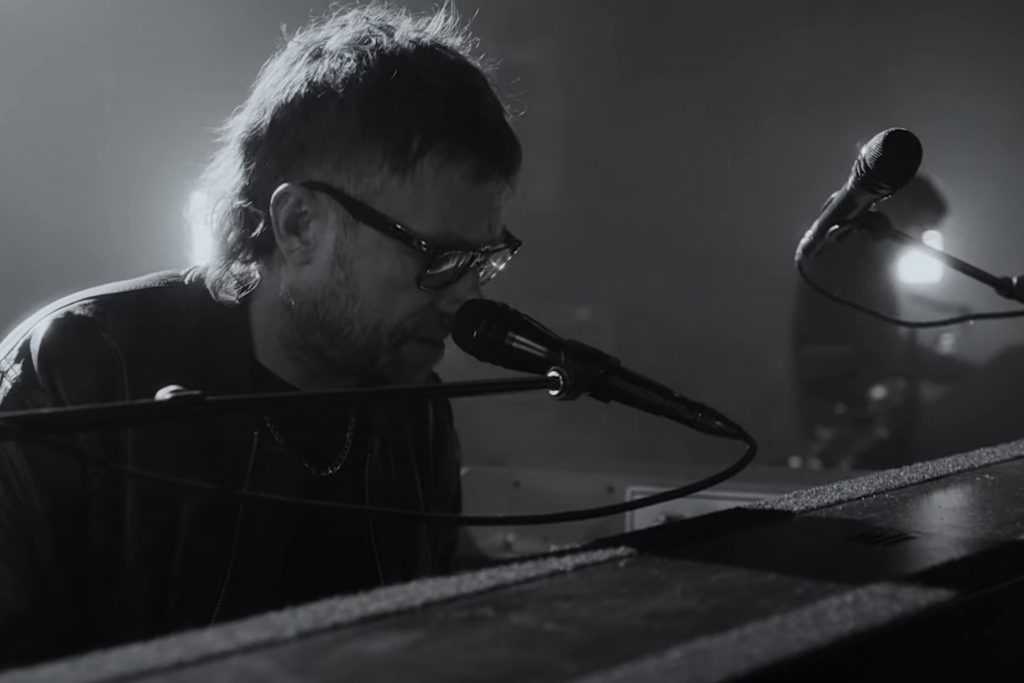
Gordon Haskell, British Musician and Onetime King Crimson Vocalist, Dead at 74
Gordon Haskell, the British singer, bassist, and songwriter best known for his brief stint in King Crimson and his 2001 solo hit “How Wonderful You Are,” has died. He was 74.
Haskell’s death was announced on his Facebook page Sunday, October 18th, although a cause of death was not given. “It is with great sadness we announce the passing of Gordon, a great musician and a wonderful person who will be sadly missed by so many,” the note read.
King Crimson also shared a remembrance on Twitter, paying respect to Haskell while also acknowledging the tumultuous nature of his tenure in the band: “His time in KC wasn’t a particularly happy part of his long career but his work on In The Wake of Poseidon and, in particular, Lizard, is much admired in the Crimson community.”
Gordon Haskell's Facebook page is reporting that Gordon has died. His time in KC wasn't a particularly happy part of his long career but his work on In The Wake Of Poseidon and in particular, Lizard is much admired in the Crimson community. pic.twitter.com/SrRlYuad3u
— KING CRIMSON (@DGMHQ) October 18, 2020
Per a bio on his website, Haskell was born in Bournemouth, England, on April 27th, 1946 and he took to music as a child. He met future King Crimson leader Robert Fripp in grammar school, and the two played together in an early band called the League of Gentlemen. The men parted ways after school and Haskell continued to play with various bands, including a new incarnation of the League of Gentlemen, the Dowlands, and the Fluer des Lys. In 1967, the Haskell-penned song “Lazy Life” was covered by William E and became a hit in South Africa, while two years later Heart and Soul took the song to Number Two in Australia.
Following his stint with the Fleur des Lys, Haskell joined the Flower Pot Men, played with Cupids Inspiration, and released his debut solo album, Sail in My Boat, in 1969. The following year, he reunited with Fripp, who asked him to overdub vocals on “Cadence and Cascade,” from King Crimson’s second album, In the Wake of Poseidon. Fripp then asked Haskell to join the band on bass and vocals for the following album, 1970’s Lizard. Haskell declined at first, mostly because he came from more of an R&B background and was unsure if King Crimson was the right band for him. But after Fripp asked again, Haskell agreed.
blogherads.adq.push(function () {
blogherads
.defineSlot( ‘medrec’, ‘gpt-dsk-tab-article-inbody1-uid0’ )
.setTargeting( ‘pos’, [“mid-article”,”mid”,”in-article1″,”mid-article1″] )
.setSubAdUnitPath(“music//article//inbody1”)
.addSize([[300,250],[620,350],[2,2],[3,3],[2,4],[4,2]])
;
});
“I said I would only do it if I was allowed to be me,” Haskell said in Sid Smith’s King Crimson bio In the Court of King Crimson, “and [Fripp] said: ‘I want you, you’ve got very good timing as a bass player and I want somebody with that Motown kind of thing and you’ll be able to do what you want.’”
Haskell’s poised and elegant delivery heightened the dramatic effect of Lizard pieces like “Cirkus.” But after the recording of the album, creative tensions developed between Haskell and Fripp, and the bassist-singer left the band.
Fripp later admitted that he had put Haskell in a tough position. “Gordon Haskell is struggling heroically to be a singer in a context where such endeavor is a functional impossibility: an accompaniment which declines to accompany and lyrics sufficient to set the psyches of strong men flapping,” he would say of the Lizard material. “No wonder Gordon prefers Motown to Crimson as an example of good songwriting.”
Haskell believed he was cheated out of royalties for Lizard, and his short time in King Crimson would remain a bit of a sore spot. “You may not believe this but somebody every week says, ‘What was it like working with Robert?’” he told Sid Smith. “Can you imagine that? Can you imagine the strength of character I’ve built up over the years?”
After leaving King Crimson, Haskell released a solo record on Atlantic, 1971’s It Is and It Isn’t, and played bass for various artists including Cliff Richard, Alvin Lee, and Tim Hardin. In 1980, he released another solo album, Serve at Room Temperature, and proceeded to spend the decade becoming a reliable touring act in clubs, bars, and cruise ships across Scandinavia. He launched a label of his own, Wilderness Records, in 1989 and released Hambledon Hill the following year; more solo records followed during the Nineties as Haskell relentlessly gigged around the south of England, building up the same kind of reliable fanbase as he had in Scandinavia.
All that groundwork paid off in 2001 with the release of his album, Look Out, and the single, “How Wonderful You Are,” which became the most requested song on BBC Radio Two and peaked at Number Two on the 2001 Christmas chart. The song was also added to Haskell’s 2002 record, Harry’s Bar, which helped the record hit Number Two on the U.K. album charts.
blogherads.adq.push(function () {
blogherads
.defineSlot( ‘medrec’, ‘gpt-dsk-tab-article-inbody2-uid1’ )
.setTargeting( ‘pos’, [“mid-article2″,”mid”,”in-article2″,”mid-article”] )
.setSubAdUnitPath(“music//article//inbody2”)
.addSize([[300,250],[300,251],[620,350],[2,4],[4,2]])
;
});
Haskell continued releasing solo albums during the 2000s — although none achieved the same success as Harry’s Bar — while in 2006 he also published his autobiography, The Road to Harry’s Bar. After a brief stint living in Greece, Haskell returned to the U.K. where he continued to tour regularly. In January, he released what has since become his final album, The Cat Who’s Got the Cream.




